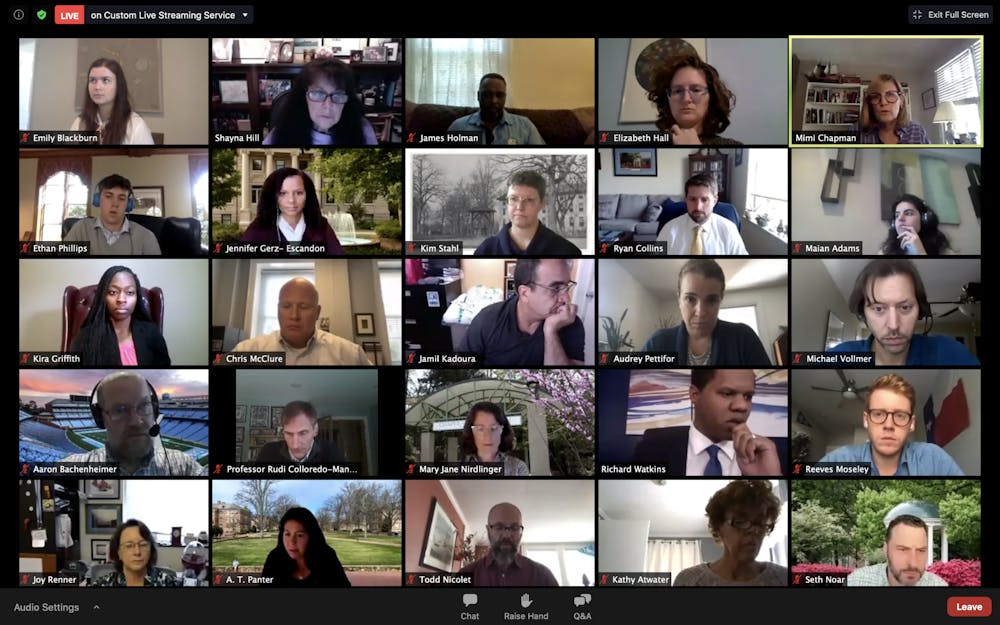The University has a daunting task ahead as it starts the planning process for the spring semester, even as we continue to reflect on the failures made in the fall. Despite months of planning and millions of dollars of investment in prevention strategies, we found ourselves taking an off-ramp after just one week.
Among the many criticisms leveled against University leadership was the lack of input from key constituencies in the decision-making process. In response, Chancellor Kevin Guskiewicz commissioned the Campus and Community Advisory Committee, a group of students, faculty, staff and community members who meet weekly to reflect on the fall semester and advise University leadership on key considerations for spring.
As the six student representatives on this 26-member committee, we have the significant responsibility of representing UNC’s 30,000 undergraduate, graduate and professional students. This is no small task, given the immense diversity of academic, personal, social and socioeconomic needs of our student body, as well as vast differences in pedagogical needs of hundreds of academic programs. One thing on which we agree, however, is that students must be kept centered in the planning process.
First and foremost, the University must protect the health and well-being of all students. Many students have and will continue to demand that we remain in remote-only instruction through the spring semester or until a vaccine is widely available. Others argue that a return to campus is critical for their academic success and mental health. We express no opinion on that threshold question here, but we agree on this much: any attempt to return to in-person instruction must be accompanied by a robust, mandatory testing program.
Student health and well-being, however, is about more than just preventing the spread of the virus; it requires addressing mental health, as well as the physical and psychological effects of increased anxiety, academic pressure and social isolation. Students need time to rest and recuperate throughout the semester, to unplug from Zoom long enough to remember and appreciate the physical world around them. We need a break.
The revised academic calendar for the spring semester will not include a Spring Break. The reasoning, as indicated in the Chancellor’s message on Oct. 8, mirrors that of the decision not to have a Fall Break — discouraging travel away from campus to mitigate transmission of the virus. But we are seeing now the detrimental effects of eliminating Fall Break on students’ mental and physical health, as well as that of faculty and teaching assistants who also benefit from these lulls in the semester. The importance of these breaks was perhaps given too little weight in the fall roadmap, and we must not make that mistake again.
In light of the University’s decision not to include a traditional Spring Break in the academic calendar, we are calling on the University to schedule multiple “mini-breaks” (two or three-day breaks, akin to a traditional Fall Break) during the semester. This will give students time to rest and recharge, while also addressing the University’s concerns regarding student travel — especially if we are committed to implementing the mass testing and tracing scheme necessary to successfully return students to campus in January.
We are grateful for the opportunity to serve on this committee and appreciate the perspectives we have already heard from our peers, constituents and fellow committee members in the past two weeks. We are also thankful for the support of the students we represent, and humbled by the trust you have placed in us to speak on your behalf.
To the student body, please know that we are committed to representing your interests and perspectives as best we can through this committee. Please do not hesitate to reach out to any of us to express your thoughts and concerns for the spring semester. We will unceasingly continue to advocate for you.




